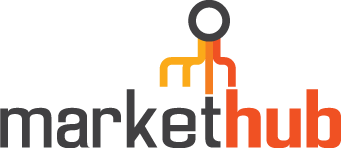
In January this year, Founder of Facebook Mark Zuckerberg announced that there are changes coming to Facebook that will have an impact on all of us who use Facebook. Organisations need to be aware of how the changes will impact the effectiveness of their facebook pages.
Zuckerberg said that ‘Facebook was created to help people stay connected and bring us closer together with the people that matter to us.’ Going forwardhe has noted that public content – such as the posts we have been making on behalf of our organisations, has been crowding out personal moments that allow people to connect more with each other.
Facebook feel that they have a responsibility to provide a platform that is good for people’s well-being, and their research has showed that when social media is used ‘to connect with people we care about, it can be good for our well-being. We can feel more connected and less lonely, and that correlates with long term measures of happiness and health. On the other hand, passively reading articles or watching videos – even if they’re entertaining or informative – may not be as good (for well-being)’ (Source: Market Zuckerberg announcement, Jan 12 2018)
So what does this mean for organisations? To start with there are some changes that Facebook will make to their algorithm that determines what people see in their Newsfeeds. They will prioritise posts from friends even more than they have in the past, over organisational, media, or other public posts. So as individuals we will see more posts from friends, family and groups, and less posts from organisations.
Zuckerberg expects that these changes will see the time that people spend on Facebook decrease.
While it is difficult to really understand the impact these changes will have on our organisational Facebook pages, you are likely to see a decrease in your post reach and other measures of engagement.
So what can we as organisations do to ensure ongoing communication success?
1) Use your Facebook posts to encourage meaningful engagement
As marketers we need to be smart, and really understand what resonates with our audience. Posts that result in engagement (likes, comments, shares) will be prioritised. So pay attention and measure what types of posts resonate, and what doesn’t. Facebook values quality over quantity. So don’t over-post. Ensure each post is meaningful – if people do not engage with your posts, Facebook algorithm will pick up that people are not engaging, and will not show your posts to many of your followers. Keep creating great content – sharing your stories and being go-to organisations in your areas of expertise.
2) No more ‘engagement baiting’ posts
Facebook will downgrade posts they consider ‘engagement baiting’. This means those posts that ask you to do something just with the aim to increase their post engagement – such as ‘Comment to win’, ‘Like us to go in the draw’, or ‘Tag your friends.’ These type of posts are not considered meaningful engagement, or the type of posts that encourage natural, organic discussion and engagement.
3) Use a variety of communication tools
Don’t put all your eggs in one basket. Facebook is still a great communication tool, but is just one tool that you should be using. A good online strategy considers your target audience, and all the appropriate channels that are right for that audience. Email is still a great communication tool to connect with your stakeholders.
4) Find ways to encourage your target audiences to share content about your organisation on their personal Facebook pages.
It’s often better to have someone talk about you, than talk about yourself. One way to do this, could be to have a Blog website where your stories or posts are able to be shared by people directly onto their personal Facebook Pages. You will need to promote your Blog to get a following, and then nurture your followers so that they regularly engage with you.
5) Use Facebook Live Streaming
Facebook Livestreaming encourages engagement, as people can respond in real time, and ask questions, or leave comments. Live videos on average get six times more interactions as regular videos. Facebook Live is also free – so still a great way to generate engagement and free organic reach. Facebook will reward you for using Facebook Live by placing your video high in your user’s newsfeeds.
6) Set up a Group
Facebook have said that Groups will perform well in the newsfeed, as groups (which may be a subset of your followers) interact back and forth regularly. This could work well for some not for profit organisations – e.g. set up an organisation volunteer group page
7) Use Facebook Ads to target your message to your audience
Facebook have said that they are not currently changing ad rankings, so you can still ensure reach by paying for advertising through Facebook. What’s good about paid advertising, is that instead of telling everyone everything, you are choosing your target audience (by location, demographics, interests, and behaviour) and are really able to ensure that those you want to see your message, do see it. The same rule should apply in advertisements – ensure your ads are quality communications that people want to engage with and share, so that your reach goes well beyond that which you have paid for.
